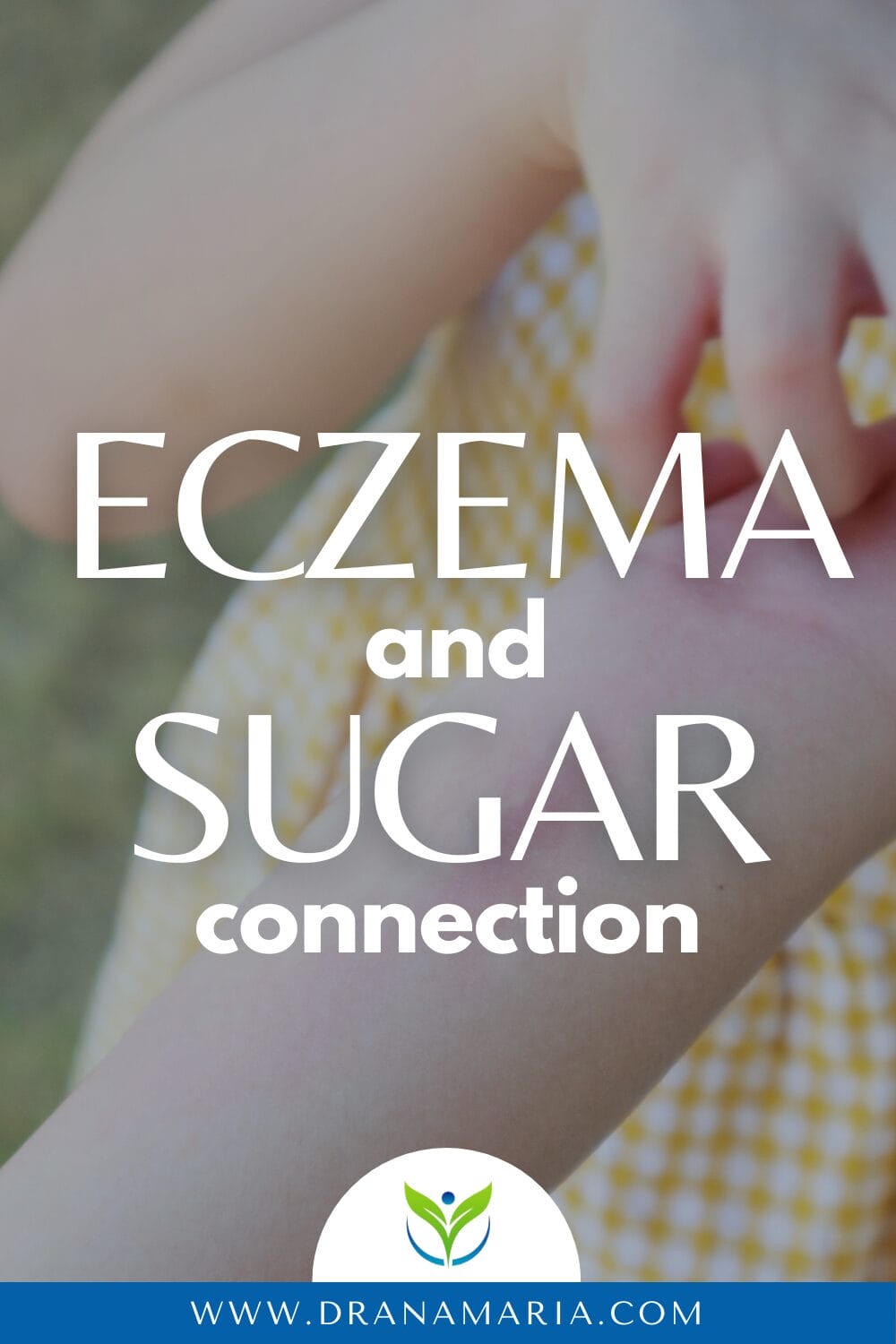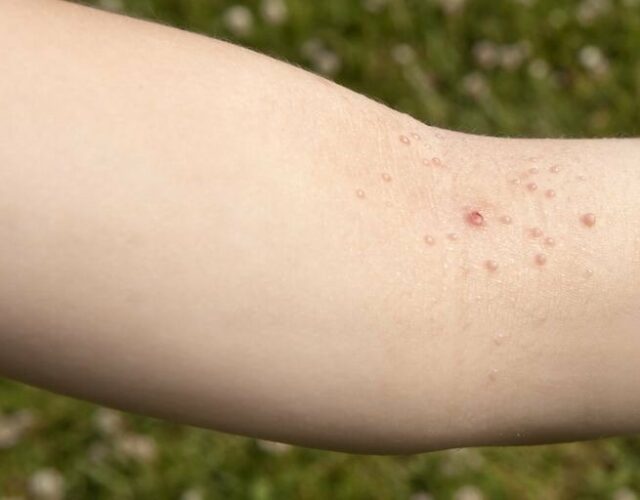Let’s talk about sugar
Is there a connection between eczema and sugar? As you may have heard before, 2 of my children suffered with eczema for years and it seemed like nothing was helping. A constant barrage of steroid creams and antibiotics had fallen short, and even made symptoms worse when discontinued (See Topical Steroid Withdrawal). Despite my busy office schedule, I was convinced to attend a nutritionist lecture at my children’s preschool on a Tuesday morning before a busy day of seeing patients. The nutritionist held up various soft drinks, juices, yogurts, and granola bars with packets of sugar dangling freely and ominously from each. The number of sugar packs hanging from each item equalled the amount of sugar contained in each. The vision of 6 sugar packets hanging below the “healthy” fruit juice box I had just packed in my kid’s lunch horrified me. I immediately put down my phone, and started paying attention to what she was saying – and it hit me like a ton of bricks. Thus began my life changing eureka moment to focus on children’s diet as medicine.
This simple image changed my life. I now use it in all my nutrition lectures and have taken it on numerous TV news appearances.
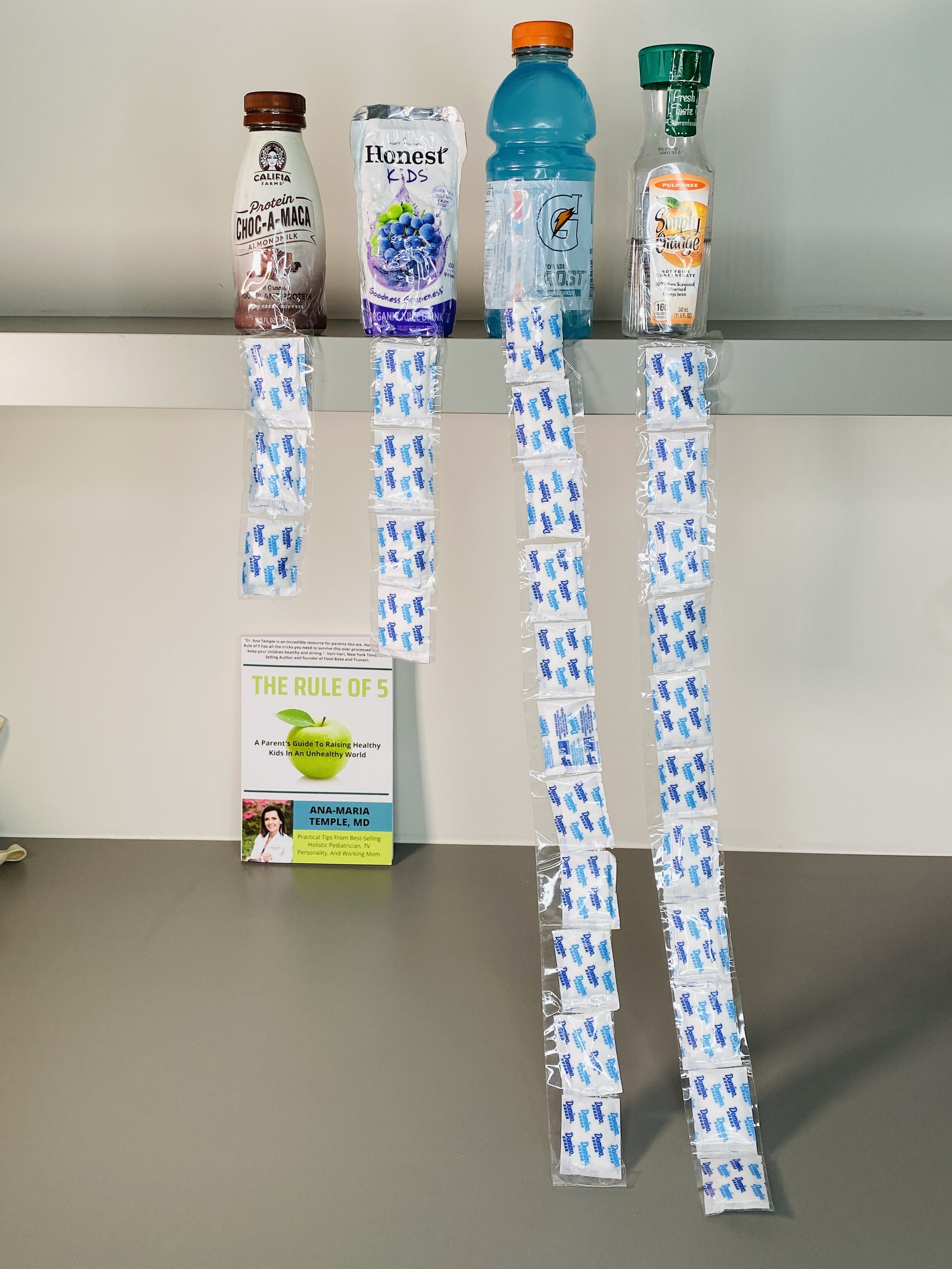
As I looked further into the issue, I discovered a number of the games the food industry has been playing with us over the years. Remember the 80’s and 90’s when we were told that fats were the real problem, and as long as we ate a low fat diet our health would benefit. It turns out when you remove all the fat from foods they don’t taste very good. So how do you make that low fat food taste good? Pack it with sugar. Additionally, a number of studies supposedly “proving” that sugar is ok and fat is the problem were sponsored by sugar beneficiaries (companies producing high fructose corn syrup etc). These studies have subsequently been disproven and we see a calculated series of steps by the sugar industry to cloud the matter. The result has not only been the obesity epidemic, but also chronic illness in our children – and epidemic proportions of eczema.

Most of us don’t see an immediate connection between sugar intake and our skin (eczema) but the evidence is clear; the daily amount of sugar you ingest directly affects your skin and therefore your eczema too. And guess who ingests more sugar than nearly every other country and the world’s highest childhood obesity rates? Yes, the United States of Sugar. It’s worth looking into our country’s sugar epidemic so you can appreciate how large the problem is and why your child is likely affected.
The average american (including children) consumes about 22 teaspoons of added sugar per day. The current recommendation from the American Heart Association is less than 6 tsp per day for children over 2, and no added sugar for children under 2 yrs old. To give you perspective a 12 oz can of Coca Cola contains about 9 teaspoons of sugar and a 12oz Mountain Dew contains 11 teaspoons. That bowl of Kellogg’s Honey Smacks gives you a nice smack in the face of 4 teaspoons per cup (and most cereal bowls hold more than a cup). So it may not be news to you that we are overloading our children with sugar, but many people don’t understand the effect of sugar on your skin.
Listen to me discuss eczema with the wellness mama
Sugar affects your skin (and eczema) in at least three significant ways:
- High sugar intake causes insulin to spike. Insulin is the hormone our body produces to aid the uptake of sugar into cells. Over time, the large insulin spikes seen after ingestion of added sugars causes the increased production of several inflammatory molecules in our body. These inflammatory molecules then roam through the body causing issues in the airways (asthma), skin (eczema) and gut.
- High sugar intake knocks your gut out of whack by encouraging the growth of sugar loving yeast. Overgrowth of yeast upsets the delicate balance of the microbiome in your gut as discussed in earlier posts. This leads to the leaky gut syndrome, which allows harmful substances into the bloodstream and the corresponding inflammatory reaction from your body. Additionally some yeast can limit the absorption of healthy nutrients your body needs further exacerbating the problem.
- Direct damage to skin. Chronically high levels of sugar (glucose) in the bloodstream causes the excess sugar molecule to start binding to other proteins in our skin. This binding process is termed glycation and damages the protein to which it attaches. Two of the commonly affected proteins in our skin are called collagen and elastin (you may have heard of celebrities getting collagen injected in their face). The damaged collagen and elastin molecules no longer can function to support the skin and it becomes dry and cracked, as seen in eczema. These damaged proteins are referred to as AGEs (Advanced Glycation Endproducts). And for all the folks out there fighting to maintain that youthful appearance, these glycation products also play a key role in the aging of skin as seen below.
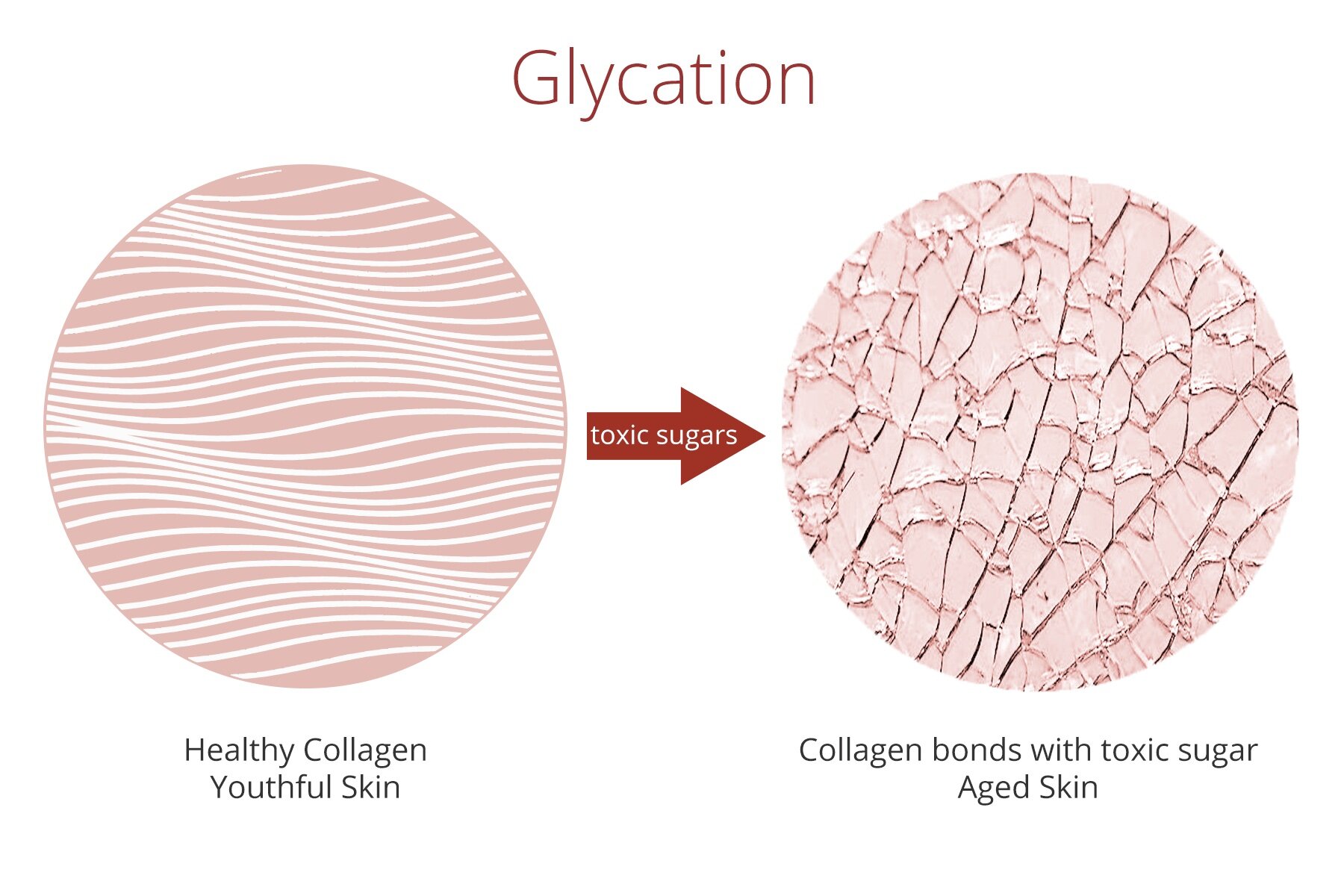
AGE’s have in many ways become the new villain in regards to skin and aging. Interestingly, the process of glycation is also what causes bread and other high carb foods to turn brown when you toast them. But for the purposes of eczema, AGE’s are simply adding one more log to the fire of inflammatory processes occurring in affected children’s skin.
For A Comprehensive Holistic Eczema Treatment System click here
Have questions?
We will answer! Book a call here to chat with one of our program experts and get all your questions answered.
Even in my own children, I have watched a weekend of binging and poor diet choices turn into eczema outbreaks and then more acne type reactions as they have aged. The immediacy of the effect is uncanny. My 17 yo is now so self conscious of the skin effect that he routinely turns down offers of sweets and sodas from his friends; score one for mom! And moms, before you go blaming your husbands for purchasing all the sugary foods listen to this fact. Maternal intake of added sugar during pregnancy increases the risk of childhood eczema. Unfortunately, routinely giving in to those sugar cravings during pregnancy may have played a role in your child’s eczema development.
To help battle the problem, in 2020 the FDA began implementing new food and beverage labels to state how much added sugar each food product contains.
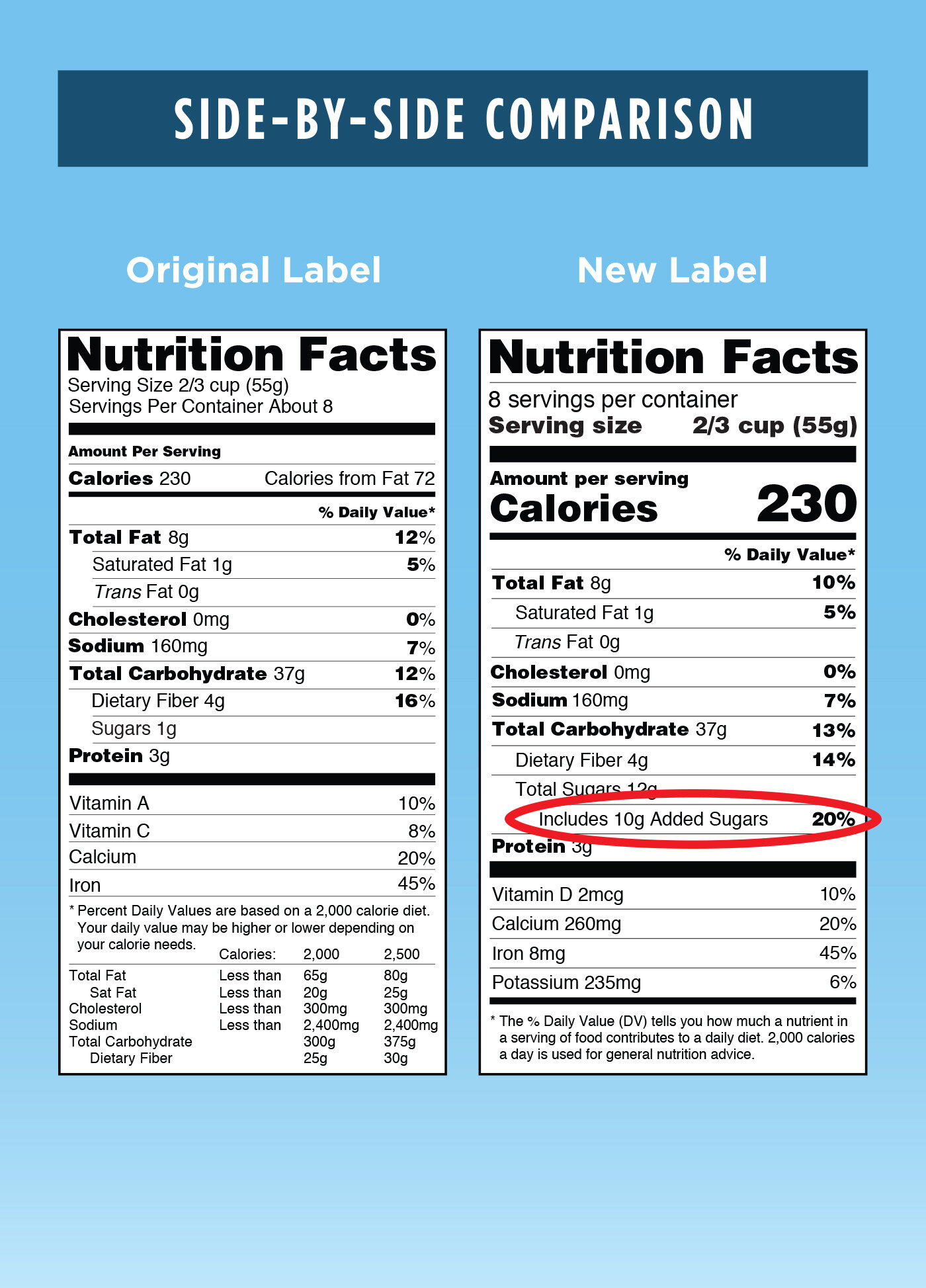
But don’t forget sugar lurks everywhere in our food with many different names. Here is a list of 56 alternate names for sugar found in “healthy” and “organic” foods that can fool you:
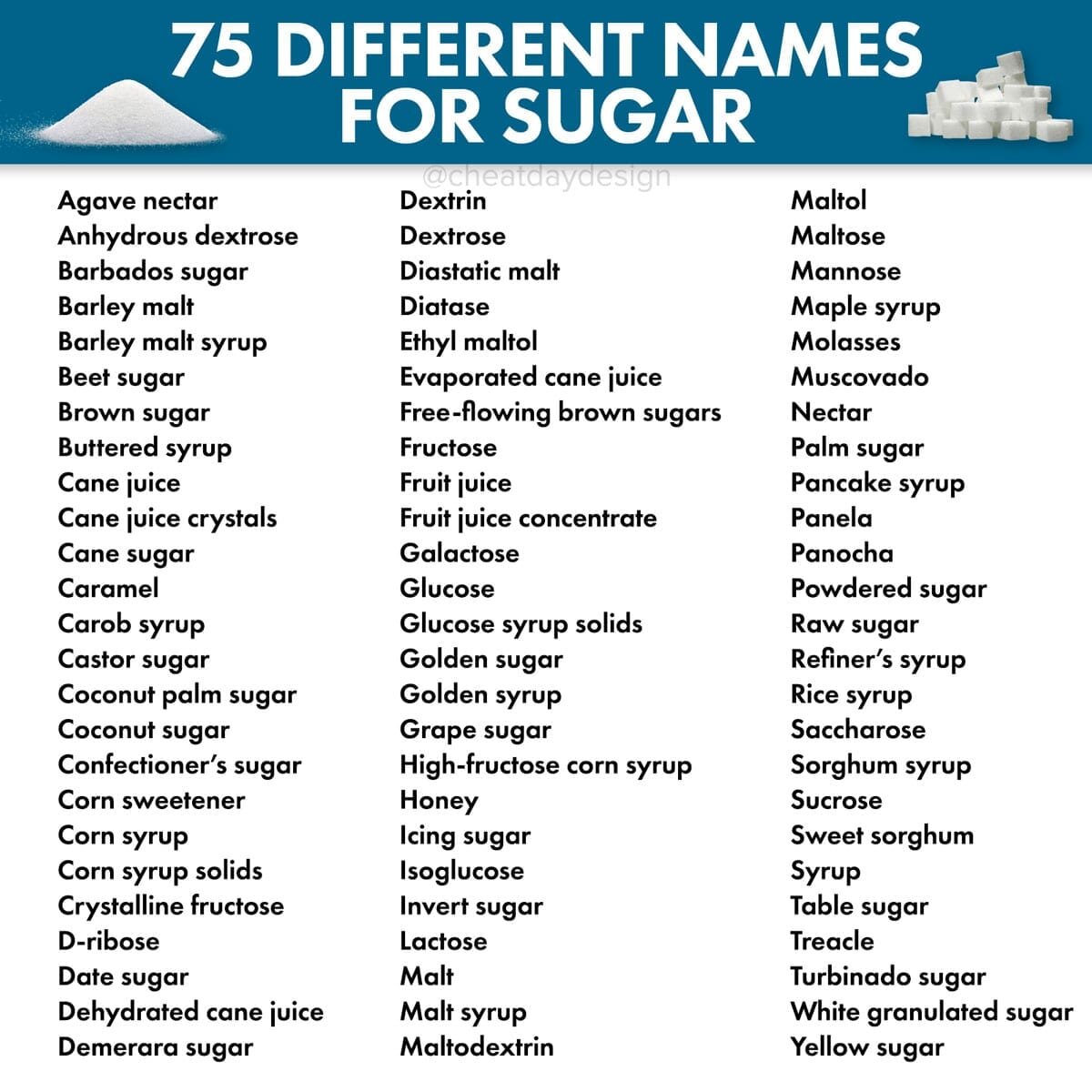
Healthy Alternatives to Sugar
**Although the alternatives listed below are healthier, they still are sugar and add to our overall sugar consumption, so use them judiciously. Also, don’t fall into the trap that my husband has – thinking that if it’s organic labelled it must be healthy. Many organic products contain just as much added sugar as their non-organic counterparts.
Pureed Fruits like apple sauce, smooshed bananas
- Contain fiber, vitamins, minerals, and natural sweetness
Raw Dark Local Honey
- Full of enzymes, antioxidants, iron, zinc, potassium, calcium, phosphorus, vitamin B6, riboflavin and niacin
- Contains powerful antioxidants
- The darker the honey, the more nutrient dense it is
- Local honey provides you with oral tolerance to local pollen. In other words, it can help reduce reactions to pollen.
- Pasteurized honey loses some of its health benefits.
Maple Syrup
- · Organic, pure maple syrup is full of antioxidants, manganese, riboflavin, zinc, magnesium, calcium and potassium.
- · Darker syrups contain more antioxidants than lighter syrups.
Stevia Leaf Extract
- This plant is native to South America and is 200 times sweeter than sugar.
- It has become a marketing hot topic and there are many garbage versions of this product out there.
- Make sure there are no additives or preservatives present.
- Avoid liquid versions containing alcohol.
- Whether you choose powder or liquid make sure it consists of only one ingredient.
Dates
- These come from date palm trees and contain fiber, potassium, copper, iron, manganese, magnesium and vitamin B6.
Coconut Sugar
- Extracted from the sap of the coconut flower, it is rich in polyphenols, iron, zinc, calcium, potassium, antioxidants, phosphorous and other phytonutrients.
Organic Blackstrap Molasses
- Highly nutritious, a great source of iron and calcium.
- Also rich in copper, potassium, manganese, selenium and vitamin B6.
- It comes from a third boiling of sugar cane which concentrates its nutrients.
Monk Fruit
- A small gourd which looks like a melon and is grown in Southeast Asia.
- It was originally used by monks in the 13th century, hence its name.
- It comes in various forms.
- Be aware that dextrose and erythritol are often added to products with monk fruit and this defeats the purpose of the natural product.
- Choose products with only one ingredient.
- Though it has zero calories, a low glycemic index, and has antioxidant properties, it has not been extensively studied in humans.
Examples of foods notorious for high levels of hidden sugars:
- Pasta Sauce
- Energy Drinks
- Granola Bars
- Yogurt
- Salad Dressing
- Condiments
As I have discussed in multiple blog posts, a number of factors contribute to the development of eczema, but particularly in children, diet and food are by far the biggest culprits. Simply reducing the amount of “added” sugar in your child’s diet can have a profound effect on their skin. Take advantage of the FDA finally getting something right by forcing food companies to list added sugar on their labels. Once you start looking at the amount of sugar added to nearly everything, you will start to understand the magnitude of the problem. For some great low sugar recipes and snack ideas check out this post by 7 Layer Charlotte.
Yours in Good Health,
Dr Ana-Maria Temple
Found this post helpful? Save for later!
